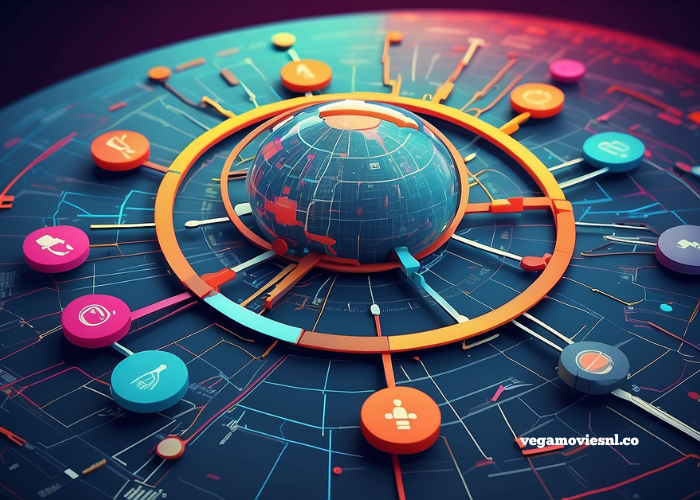In an era marked by rapid technological advancement, staying abreast of the latest trends is imperative for individuals and businesses alike. The digital landscape is constantly evolving, introducing innovations that shape how we live, work, and interact. From artificial intelligence to blockchain, virtual reality to quantum computing, the possibilities seem limitless.
Navigating this dynamic landscape requires a keen understanding of emerging technologies and their potential impact. In this article, we delve into the forefront of the digital age, exploring the latest trends shaping our technological future.
Artificial Intelligence (AI) Revolutionizing Industries
Artificial Intelligence (AI) stands at the forefront of technological innovation, revolutionizing industries across the board. From predictive analytics to autonomous vehicles, AI-powered solutions are transforming how businesses operate and how consumers interact with technology.
Machine learning algorithms enable computers to learn from data and make predictions, enhancing efficiency and decision-making processes. In healthcare, AI facilitates disease diagnosis and drug discovery, while in finance, it powers algorithmic trading and fraud detection. As AI continues to evolve, its applications will only become more pervasive, reshaping the very fabric of our society.
The Rise of Blockchain Technology
Blockchain technology, known primarily as the backbone of cryptocurrencies like Bitcoin, has emerged as a disruptive force in various sectors beyond finance. At its core, blockchain is a decentralized ledger that records transactions across a network of computers, ensuring transparency, security, and immutability. Beyond financial applications, blockchain is revolutionizing supply chain management, healthcare, real estate, and voting systems.
Its decentralized nature eliminates the need for intermediaries, reducing costs and enhancing trust. As blockchain matures, its potential to revolutionize traditional industries becomes increasingly evident, paving the way for a more transparent and secure future.
Immersive Experiences with Virtual Reality (VR) and Augmented Reality (AR)
Virtual Reality (VR) and Augmented Reality (AR) technologies are redefining the way we experience digital content, blurring the lines between the physical and virtual worlds. VR immerses users in entirely virtual environments, transporting them to new realms limited only by imagination.
From gaming and entertainment to training simulations and virtual tours, VR offers endless possibilities for exploration and interaction. On the other hand, AR overlays digital content in the real world, enhancing our surroundings with additional information and experiences. From smartphone apps to smart glasses, AR is poised to revolutionize industries ranging from retail and advertising to education and healthcare.
Unlocking the Power of Quantum Computing
Quantum computing represents the next frontier of computational power, promising unprecedented capabilities beyond the reach of classical computers. Unlike traditional binary-based computing, which relies on bits representing either 0s or 1s, quantum computers leverage quantum bits or qubits, which can exist in multiple states simultaneously. This allows quantum computers to perform complex calculations at speeds exponentially faster than classical computers.
While still in its infancy, quantum computing holds immense potential for solving optimization problems, simulating molecular structures, and advancing artificial intelligence. As research and development progress, quantum computing has the potential to revolutionize fields such as cryptography, drug discovery, and climate modeling.
Sustainable Technology Solutions for a Greener Future
As concerns over climate change and environmental sustainability intensify, technology plays a pivotal role in driving solutions for a greener future. From renewable energy sources like solar and wind power to energy-efficient buildings and smart grids, technological innovations are crucial for mitigating the impact of human activities on the planet.
Advanced monitoring and analytics enable better resource management, while IoT devices optimize energy consumption and reduce waste. Additionally, breakthroughs in materials science and biotechnology hold promise for eco-friendly alternatives to traditional manufacturing processes. By harnessing the power of technology, we can work towards a more sustainable and resilient world for future generations.
Conclusion
The digital age is characterized by constant innovation and disruption, with technology trends shaping the way we live, work, and interact. From artificial intelligence and blockchain to virtual reality and quantum computing, the possibilities are endless.
By staying informed and embracing emerging technologies, individuals and businesses can navigate the complexities of the digital landscape and seize opportunities for growth and innovation. As we continue to explore the latest trends in technology, it’s essential to harness the power of innovation responsibly, ensuring that technology serves as a force for good in an ever-changing world.
